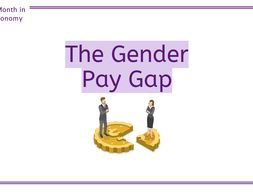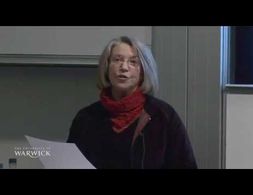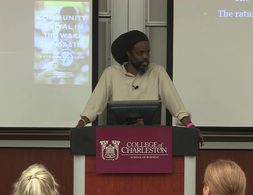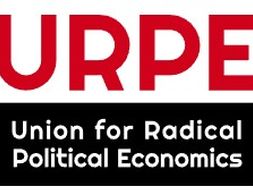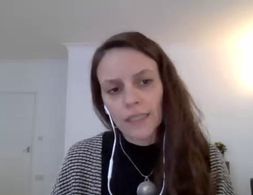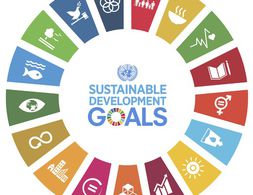484 Ergebnisse
Emily Barman Maxwell Boykoff Per Jensen Guðný Björk Tine Rostgaard Simone Pulver Anna Henkel Gerhard Fuchs lecture2go Uni Hamburg Universität Hamburg
This statistics and data analysis course will introduce you to the essential notions of probability and statistics We will cover techniques in modern data analysis estimation regression and econometrics prediction experimental design randomized control trials and A B testing machine learning and data visualization We will illustrate these concepts with …
The gender pay gap is a pressing issue that affects individuals and society as a whole, so it is important for economics students to understand it. Despite recent progress, women still earn less than men for the same jobs, leading to economic inequalities and reduced efficiency (see, for example, the recent report released by Moody’s). Understanding the causes and consequences of the gender pay gap is critical in developing policies that promote fairness and equality.
John Christensen from the Tax Justice Network addresses the Modern Monetary Theory idea that governments don't need tax revenues if they want to spend money. Doing so, he sums up the main points made by MMT proponents and their critics, and shows how MMT can be reconciled with another progressive economic narrative: "Modern Tax Theory". While MMT made valuable contributions to the policy debate on fiscal policy, it misrepresents the importance of taxation as a political matter and as a way to generate public revenues. This is where MMT steps in.
In order to address discrimination, we must understand and address its fundamental basis of systemic oppression. Stratification economics goes beyond myopic mainstream conceptualisations of discrimination and recognises the historical, institutional, and structural factors that create and maintain socioeconomic disparities and hierarchies. To critically approach the economics of discrimination, this workshop will focus on stratification economics, a systematic and empirically grounded approach to addressing intergroup inequality (Darity, 2005). Focusing on racial discrimination, we will discuss the core elements of stratification economics, critically evaluate its relevance, and apply these understandings to construct case studies and solutions for change. In our discussions, we will consider an array of topics, including intersecting oppressions, reparative justice, and the role of knowledge production in overcoming injustice and creating a better world.
Does Karl Polanyi's work “The Great Transformation” serve to analyse the current multiple crisis and social movements? Nancy Fraser revises Polanyi's concept of a double movement to capture social forces in the aftermath of the economic crisis of the 1930s – on the one side marketization and on the other hand social protection. Fraser proposes to talk about a triple movement and to account for emancipatory struggles. In the lecture, she discusses interactions as well as conflicts between those three forces, in particular conflicting aims of social protection. The lecture presents the content of her paper “A TRIPLE MOVEMENT? Parsing the Politics of Crisis after Polanyi“ in the New Left Review (2013).
The MINE website explores the interplay between nature and economy. Focusing on such fundamental concepts as time, thermodynamics, evolution, homo politicus and justice, a new outline of economic activity emerges within nature. The dominant approach of Mainstream Economics, which considers nature as a subsystem of the economy, is thus replaced by a broader and more integrated framework. The visual map and its links between concepts provides an orientation. The visitor can approach the content from their own starting point and follow their own path to discovery. Each concept starts with the historical background and moves on through theory and practice.
The research behind MINE began in the 1970s at the University of Heidelberg, Germany, in an interdisciplinary group spearheaded by Professor Malte Faber, including scientists from economics to mathematics, physics and philosophy. The research has contributed to the field of Ecological Economics.
MINE is directed at students, scientists and decion-makers. More on http://nature-economy.de/faq/
With a focus on Chile, Pinochet’s Economic Accomplices: An Unequal Country byForce uses theoretical arguments and empirical studies to argue that focusing onthe behavior of economic actors of the dictatorship is crucial to achieve basic objectivesin terms of justice, memory, reparation, and non-repetition measures.
In this essay the authors take a look at how welfare could be provided in a degrowth society.
This article makes a necessary connection between economics as an academic discipline and recent events surrounding sexual harassment in the workplace. To get justice, targets must show measurable harm: economists can help.
This fresh and unique textbook provides students and general readers with an introduction to economics from a new and much needed perspective, characterised by its uniquely pluralist, sustainable, progressive and global approach.
Unlike traditional textbooks, Introducing a New Economics contains the key concepts of pluralism, sustainability and justice. It provides students with the central questions covered by economics including resources, work, employment, poverty, inequality, power, capital, markets, money, debt and value.
Stratification economics is defined as a systemic and empirically grounded approach to addressing intergroup inequality. Stratification economics integrates economics, sociology and social psychology to distinctively analyze inequality across groups that are socially differentiated, be it by race, ethnicity, gender, caste, sexuality, religion or any other social differentiation.
Marxian Political Economy focuses on the exploitation of labour by capital. The economy is not conceived as consisting of neutral transactions for exchange and cooperation, but instead as having developed historically out of asymmetric distributions of power, ideology and social conflicts.
In this essay the authors argue for a wider concept of care work that includes community building, civic engagement and environmental activism. On the basis of the case of Cargonomia, a grassroot initiative in Budapest, they show that such a wider concept of care work could allow for different narratives that promote sustainable lifestyles with a milder environmental and social impact on the planet and its communities.
Recovery from the Covid-19 crisis provides a chance to implement economic measures that are also beneficial from environmental and social perspectives. While ‘green’ recovery packages are crucial to support economies tracking a low-carbon transition in the short-term, green measures such as carbon pricing are also key to improving welfare in the long-term. This commentary specifies the need for carbon pricing, outlines its implications for our everyday lives, and explains how it works alongside value-based change in the context of climate action and societal well-being.
Is or has economics ever been the imperial social science? Could or should it ever be so? These are the central concerns of this book. It involves a critical reflection on the process of how economics became the way it is, in terms of a narrow and intolerant orthodoxy, that has, nonetheless, increasingly directed its attention to appropriating the subject matter of other social sciences through the process termed "economics imperialism".
This book highlights the political economy of wealth and income inequality in Latin America. The author segments his analysis to separately evaluate the economic, social, and political costs of inequality building on country case studies. It draws well-contextualized lessons from the Latin American experience that is important to consider for other regional contexts, especially for social policies of nations within the 'Middle Income Trap'.
This course will introduce key concepts, theories and methods from socioeconomics. The first part of the course, will deal with the main economic actors and how their interactions are governed. Markets are seen as sets of social institutions. Institutions shape how consumers, firms and other economic actors behave. While it is difficult to understand how novelty emerges, we can study the conditions that are conducive to innovation. We will review how economic performance, social progress and human wellbeing are measured and what progress has been made. In the second part of the course, we will study a specific macroeconomic model that accounts for biophysical boundaries and inequality.
For many social critics "globalization" is a signpost of “late-capitalism” with the rise of multinational corporations, mass consumption and the multidirectional flows of capital, labor, media, communication, ideologies and social movements across national borders. Feminist analyses of globalization and the gendered and sexualized permutations of these phenomena offer a critical stance for theorizing these processes, and for studying their complex articulations across time and space.
As a response to ongoing economic, social and environmental crises, many private actors have enlarged their definition of 'value' to include environmental and social elements. Such practices, however, appear incompatible with the current epistemological structure of academic financial discourse.
In this talk, Virgil Henry Storr, a Research Associate Professor of Economics in the Department of Economics at George Mason University, talks about his research into to post-disaster recovery and the role that social entrepreneurship plays in rebuilding the communities and social networks that get disrupted, or entirely eliminated.
In this classic work of economic history and social theory, Karl Polanyi analyzes the economic and social changes brought about by the "great transformation" of the Industrial Revolution.
The global financial crisis (GFC) led to increasing distrust in economic research and the economics profession, in the process of which the current state of economics and economic education in particular were heavily criticized. Against this background we conducted a study with undergraduate students of economics in order to capture their view of economic education.
Founded in 1968, The Union for Radical Political Economics (URPE) is an interdisciplinary membership organization of academics and of activists. Its mission is to promote the study, development and application of radical political economic analysis to social problems. Concretely, this involves a continuing critique of both the capitalist system, and of all forms of exploitation and oppression. URPE’s mission also includes, coming out of this critique, helping to construct a progressive social policy, and a human-centered radical alternative to capitalism.
The authors discuss how identity affects economic outcomes by bringing together psychological and sociological perspectives and economics. For economic outcomes of a single individual, it might be interesting which kind of social groups this individual belongs to. This may influence individual daily decisions and hence economic outcomes. It can, however, not only affect individual economic outcomes but also economic outcomes of organizations, institutions and other groups. This paper describes these influences with respect to gender in the workplace, to the economics of poverty and social exclusion, and to the household division of labour.
Understanding gender inequality is possible only when looking at the intersections between race and class inequalities. The health crisis is no different: Stevano takes a feminist and social reproductive perspective, from unpaid household work to social infrastructure and services.
Steven G. Medema is a Research Professor at Duke University. His research focuses on the History of Economic Thought, having published extensively on the issue of social costs of production (conceptualized as externalities in neoclassical economics). In this recorded seminar, he exposes his working paper on the history of the concept of externalities in economic literature, starting from Pigou’s “The Economics of Welfare” (1920), where Pigou makes the case for governmental intervention in the market where there is a divergence between private and social costs or benefits of a productive activity. T
The 2007–08 credit crisis and the long recession that followed brutally exposed the economic and social costs of financialization. Understanding what lay behind these events, the rise of “fictitious capital” and its opaque logic, is crucial to grasping the social and political conditions under which we live. Yet, for most people, the operations of the financial system remain shrouded in mystery.
Der Beitrag befasst sich mit der Schaffung finanztheoretischer Rahmenbedingungen hinsichtlich einer sozial-ökologischen Transformation der heutigen Wirtschaftsweise durch gezielt-effiziente Anpassung der Geschäftstätigkeit des globalen Bankensektors unter Betrachtung der resultierenden Folgewirkungen zwecks hinreichender Zielerfüllung im Sinne des Pariser Abkommens.
Wie erfüllen und finanzieren wir die Ziele des Pariser Abkommen / Climate Agreement (Social Development Goals (SDG) & Environmental Social Governance (ESG)) in nur noch 30 Jahren? Eine mögliche Antwort.
This article, looks at the complex interaction between an urban economy and the vegetation within that urban area. In summary, numerous studies have found a positive link between increased vegetation and social as well as personal health. It makes a case for increasing urban vegetation as a way to benefit local economies.
Exploring Economics, an open-access e-learning platform, giving you the opportunity to discover & study a variety of economic theories, topics, and methods.
This article outlines the fundamental challenges of democratically planned economies and categorises proposed models into six groups, each of which approaches planning and coordination at different levels of authority and between myriad economic units in a particular way, taking into account efficiency as well as democratic principles and environmental and social sustainability. Through a classification system based on decision-making authority and mediation mechanisms, the article provides a framework for understanding and comparing these models. By examining their different approaches, it offers insights into the complexities and potential paths of democratically planned economies in the 21st century.
Wir nutzen Cookies. Klicke auf "Akzeptieren" um uns dabei zu helfen, Exploring Economics immer besser zu machen!


